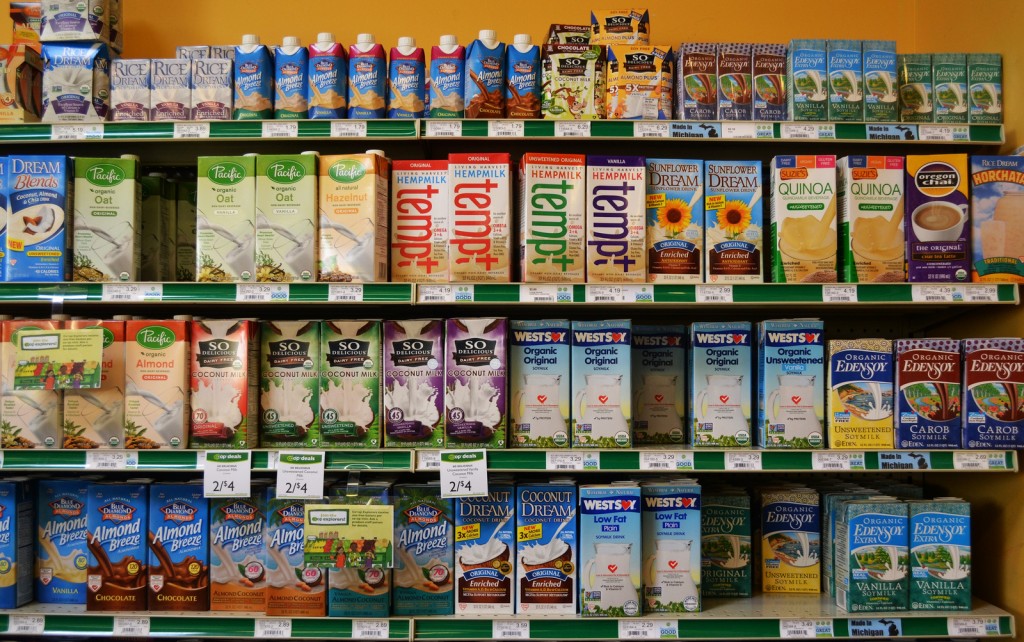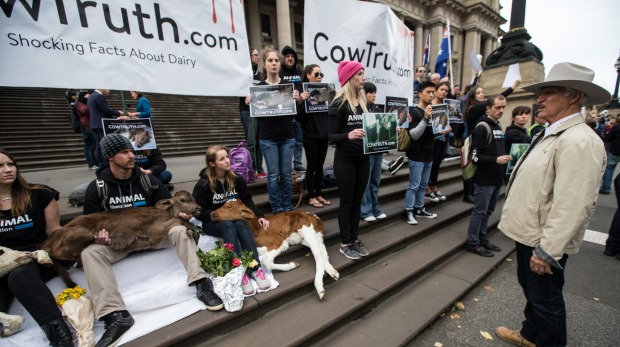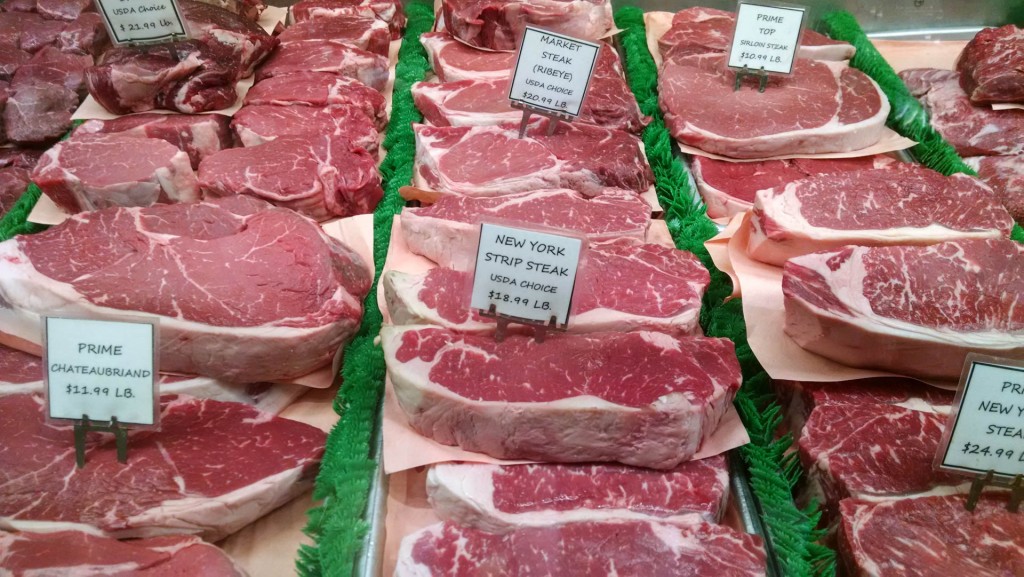Dairy crisis
Things are changing quickly and there are encouraging articles every day about the shift towards more plant-based options, eating less meat, and awareness of the effects of our diet on health, climate change and animals.
The dairy industry may be the first place we see the effects of these changes. In our city’s local grocery stores there are so many alternatives non-dairy milks offered. Soy, almond, coconut, rice, cashew, hemp, pistachio, all these new options are on the shelves as an option to cow’s milk. Part of the rise of these milks may be that there are many lactose-intolerant people, in addition to vegans. But, in general, more people are aware of some of the negative aspects of dairy on their health. And can it also be that people are caring more about the treatment of animals?
Milk tends to be a product that mostly children drink by the glassful. Adults use it in cereal, recipes or in their coffee, but rarely drink it on it’s own. I believe that makes it easier to be replaced than cheese.

I’m a little embarrassed to admit this publicly, but I did not realize until about 4 years ago that cows had to be forcibly impregnated every year or two, and that their male calves were taken away from them and killed early on as veal or slaughtered for beef, while the females became dairy cows as well separated from their mothers. I don’t know that I ever even gave it any thought, or just imagined that cows could just keep producing milk indefinitely on their own. While I am not a country girl, I understand that there may be some exceptions and better treatment on some farms, but not for the large farms.
The dairy crisis is a complex situation of which I can only skim the surface, with China stockpiling milk from New Zealand adding to the situation. It is terrible for farmers and cows, with a 6 week waiting list for cows that are being sold for slaughter due to farms going bankrupt.
In Australia right now, there are protests taking place because the smaller dairy farmers are being undercut by cheaper factory farm milk. They are asking consumers to drink more milk and also pay the extra dollar to make up for the price slashing. While I think the factory farms are the larger issue in this case, it is time for the meat and dairy industry to prepare for changes in the market and not depend on consumer’s good will. I don’t see this situation improving for them.
In the midst of this personal and financial turmoil, Animal Rights protestors were also at the protest in Australia cradling dead calves, I felt a bit conflicted. How horrible to have dead animals as a spectacle at this event. But, when you think about how the dairy farmers are protesting against the government for undercutting their profits, the cow is viewed simply as a product. Now we are forced to view them as victims also.

Then I thought about how it is awful to see these dead animals in public, yet we are okay with viewing cow’s bodies cut up without skin. How strange is that? We don’t want to view them as animals, we only want to see them as products.

This catastrophe for dairy farmers is not likely to improve soon, this is the way of the future, and the writing is on the wall.
We have no option but to bear the economic consequences in order to fix our system. And that applies to the meat industry as well. There is no price that we cannot pay that is worse than our future resources if we don’t adapt. In order to sustain a growing population, the trend away from animal products will continue.

